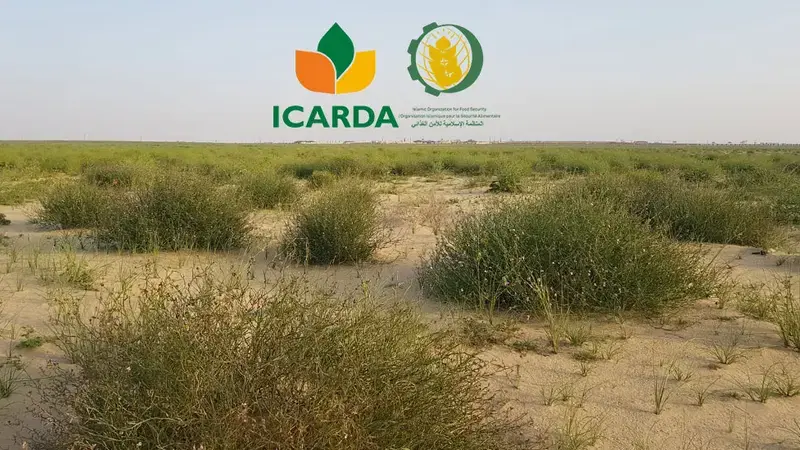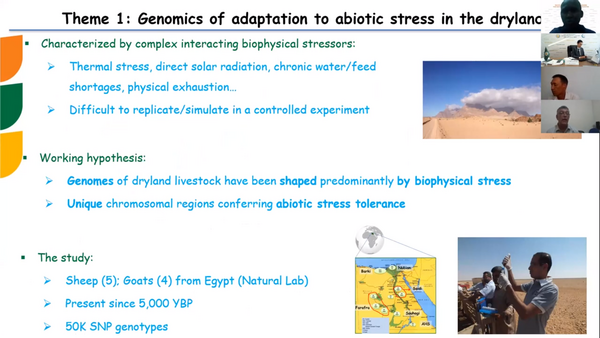ICARDA Signs MOU with the Islamic Organization for Food Security

During the Fourth General Assembly of the Islamic Organization for Food Security, ICARDA’s Director General Mr. Aly Abousabaa and the Director General of IOFS Mr. Yerlan A. Baidaulet signed a Memorandum of Understanding between ICARDA and IOFS, restating their commitment to developing enduring partnerships to tackle the pressing issues that threaten global food security in the online event.
The MoU formalises the partnership between the two organizations and builds on their longstanding shared partnerships and network of stakeholders within the region. The MoU will also leverage each agency's comparative advantage on key areas through the coordination of exchanged visits, consultations, and joint studies on biodiversity and conservation, effective water management, transboundary pest management, and strategic crops such as wheat and date palm.
Capitalizing on the signing of the MoU, ICARDA scientist Joram Mwacharo participated in the IOFS "International Workshop on the Role of Animal Genetic Resources in Ensuring Food Security and Improving Livestock Production" online event to share an overview of ICARDA's research on small ruminant genomics. The workshop took place on the 13th of September, and was an opportunity for both organizations to take advantage of their strengthened partnership and commitment to knowledge sharing.

IOFS is an international organization that was founded in 2016 as a specialized institution of the Organization of Islamic Cooperation, with a mandate to provide its Member states with the latest expertise and knowledge on sustainable agriculture, rural development, biotechnology, and food security. In addition to work on food security emergencies, formulating and implementing common agricultural policies, addressing problems posed by desertification, deforestation, erosion, and salinity, and mobilizing financial and agricultural resources.
Both ICARDA and IOFS work in severely resource-stressed areas that face serious water scarcity, climate variability, severe environmental degradation, and extreme temperatures and drought. ICARDA implements proven agricultural technologies and innovations that include climate smart crops, resilient crop-livestock systems, and sustainable soil and water management to improve the livelihoods of dryland rural communities.
